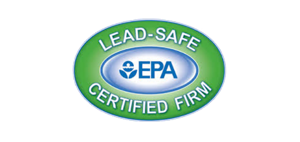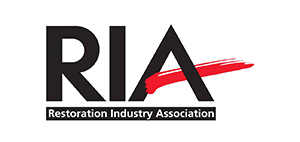Water damage in a home can be a distressing experience that can often lead to significant health hazards and structural challenges, some of which may not immediately present themselves. The safety of sleeping in a water damaged home is a question many homeowners face, but unfortunately, the answer isn’t always straightforward.
In this section, we will explore this question in detail, considering the potential risks, causes, and measures that can be taken to ensure your well-being. By the end of this section, you will have a clear understanding of the safety issues associated with sleeping in a water damaged home.
Key Takeaways
- Water damage can cause potential risks to the inhabitants of a home.
- The severity of water damage can range based on several factors and can be challenging to assess without professional help.
- There are safety measures homeowners can take to minimize hazards when sleeping in a water damaged home.
- It is recommended to seek professional restoration service if unsure about the safety of sleeping in a water damaged home.
- Assessing the risk involved is crucial to take necessary steps to ensure your safety and well-being.
Understanding the Risks of Water Damage
Water damage can wreak havoc on a home, causing a host of issues that can pose potential risks to its inhabitants. It is important to understand the potential hazards associated with water damage, in order to make informed decisions about the safety of staying in a water damaged property.
Structural Damage: One of the biggest risks of water damage is the potential for structural damage to the property. Water can weaken and compromise the structural integrity of a building, making it unsafe for inhabitants. Additionally, water damage can lead to warped or bowed walls, sagging ceilings, and other issues that can pose risks to the safety of tenants.
Mold Growth: Another significant risk associated with water damage is the growth of mold. Mold thrives in damp environments and can quickly spread throughout a property, causing health issues such as respiratory problems, allergic reactions, and headaches. In addition to health risks, mold growth can also cause damage to the structural integrity of a property.
Electrical Issues: Water damage can also lead to electrical issues in a property, which can pose serious risks to both the safety and health of inhabitants. When water comes into contact with electrical systems, it can cause short circuits, fires, and electrical shocks. This can endanger anyone in the immediate vicinity and may even lead to fatalities.
By understanding the potential risks associated with water damage, you can take steps to ensure your safety and wellbeing when staying in a water damaged property. In the next section, we will explore how to assess the severity of water damage.
Assessing the Severity of Water Damage
When dealing with water damage, it is important to assess its severity to determine the possible risks associated with staying in the property. The severity of water damage can vary depending on factors such as:
- The source of water intrusions (e.g., clean water, greywater, or blackwater)
- The duration of exposure
- The extent of the damage
Assessing the severity of water damage involves identifying the affected areas and evaluating the level of damage in each one. The following factors should also be considered when determining the potential risks of staying in the property:
- The presence of mold or mildew
- The structural integrity of the building
- The electrical safety of the property
To ensure your safety, it is advisable to seek professional assistance in assessing the severity of water damage. Professional restoration companies have the equipment and expertise necessary to identify potential hazards associated with water damage, such as mold or structural damage.
| Severity Level | Description |
|---|---|
| Level 1 | Minimal damage |
| Level 2 | Significant damage, affecting one room or area |
| Level 3 | Large-scale damage, affecting multiple rooms or areas |
| Level 4 | Severe damage, affecting the entire property |
It is essential to take the severity of water damage seriously and seek professional assistance to determine the potential risks to your health and safety before considering sleeping in a water damaged property.
Safety Precautions for Sleeping in a Water Damaged Home
If you must stay in a water damaged home, taking safety precautions can minimize the risks to your well-being. Proper ventilation is crucial to prevent mold growth and promote fresh air circulation. Safeguard your respiratory health by wearing protective equipment like dust masks when cleaning up any damage. Seek advice from a professional restoration company for guidance during the cleanup process, especially if you suspect contaminated water is involved.
Remember to turn off the electricity and gas supply to avoid hazards like electrical shocks or gas leaks, especially in cases where the water damage has affected electrical appliances or wiring. In addition, keep an eye out for any structural damage that may pose risks to your safety.
When it comes to sleeping arrangements, avoid sleeping in any area with visible mold growth or dampness. Ensure your sleeping space is clean, dry, and free of odors that may indicate hidden damage. Consider using air purifiers or dehumidifiers to improve air quality and reduce the risk of airborne toxins. Also, use only clean and dry bedding to avoid exposure to mold and bacteria.
Conclusion
After exploring the risks and concerns associated with sleeping in a water damaged home, it is important to take the necessary safety precautions before considering overnight stays. Assessing the severity of the water damage is crucial in determining the potential hazards that could pose a threat to your well-being.
Furthermore, seeking professional assistance is highly recommended if you have concerns about the safety of sleeping in a water damaged property. This could include enlisting the services of a qualified restoration company or hiring a qualified expert to inspect the property and assess the damage.
Remember, your health and safety should always be the top priority. Taking the necessary steps to ensure the safety of yourself and others in a water damaged home is essential. By implementing the safety measures discussed in this article, you can minimize potential risks and hazards associated with water damage.
In conclusion, sleeping in a water damaged home may not be safe, but by assessing the severity of the damage and taking the appropriate safety measures, you can reduce the risks and sleep soundly knowing that you have taken the necessary precautions to protect yourself and your loved ones.
FAQ
Is it safe to sleep in a water damaged home?
Sleeping in a water damaged home can be unsafe due to potential risks and hazards. It is important to assess the severity of the water damage and take necessary precautions before considering overnight stays.
What are the risks associated with water damage?
Water damage can pose various risks, including structural damage, mold growth, and electrical issues. These hazards can compromise the safety and health of occupants.
How can I assess the severity of water damage in a property?
The severity of water damage can be evaluated by considering factors such as the source, duration, and extent of the water intrusion. It is recommended to seek professional assistance in assessing the damage.
What safety precautions should I take when sleeping in a water damaged home?
To minimize risks, it is important to implement safety measures such as proper ventilation, using protective equipment, and seeking professional assistance. These precautions can help protect your well-being.
Should I consult with a professional restoration company or expert if I have concerns?
Yes, if you have concerns about the safety of sleeping in a water damaged property, it is highly recommended to consult with a professional restoration company or a qualified expert. They can provide guidance and ensure your well-being.
What should I do if I need to sleep in a water damaged home temporarily?
If you find yourself needing to sleep in a water damaged home temporarily, it is essential to ensure your safety. Take precautions such as avoiding direct contact with damaged materials, using protective gear, and seeking professional advice.





















